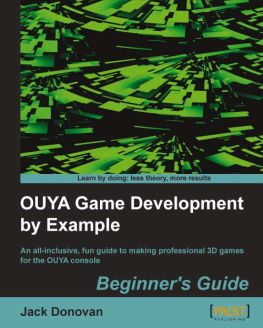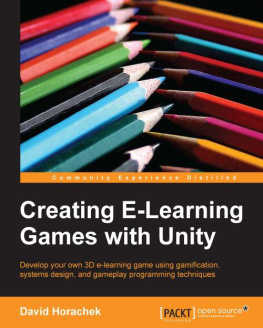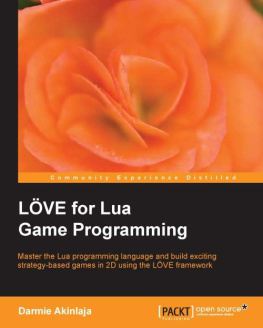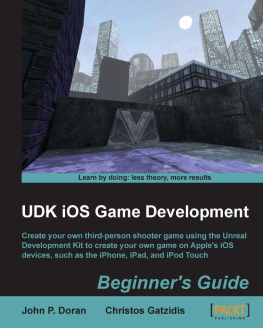About the Author
Kurt Jaegers is a database and network administrator, and a long-time hobbyist game developer, having built games for everything from the Commodore 64 to the Xbox 360. He is the owner of xnaresources.com and the author of the C# version of XNA Game Development by Example.
I would like to thank my parents George and Julie Jaegers for investing in a newfangled Atari 400 computer back in the 80s and encouraging my interest in computer programming from a very early age. As with my first book, thanks go to my wife Linda for proofreading, as well as my brother Jason for providing most of the graphics for the games.
About the Reviewers
Michael Schuld started his foray into game development using Managed DirectX 9, and after playing with the framework for a few months, decided that there wasn't enough beginner content out in the world to help people new to game development get started.
To fix this problem, he immediately set out writing a tutorial series that he kept up-to-date with the change from Managed DirectX to XNA, and all the updates to the XNA Framework since then. Along with these tutorials, he hosted a popular XNA Game Development forum and has helped hundreds of programmers new to game development get their feet wet. The site and tutorials have been listed by Microsoft and Game Informer as one of a select list of community resources for anyone wanting to learn the XNA Framework.
More recently, he has expanded his work into DirectX 11 and reviewing books in the game development arena. His recent work, tutorials, and reviews can all be found on http://www.thehazymind.com.
I would like to thank David Bonner, Charles Humphrey, and Michael Quandt for their early interest and assistance with my tutorial series, both in reviewing the content for ease of use and helping out with the forums. I'm glad to have you guys around to keep things from getting too crazy.
Pedro Daniel Gida Vzquez is the owner of Pulsar Coders, an indie company that develops video games for many platforms. He enjoys working daily on everything related to video game development. Economist, System Analyst, Professor, Microsoft MVP for DirectX and XNA are some of the accomplishments obtained by him throughout his life. His skills cover many areas in the field, both technical and artistic, and he is always looking for interesting challenges to extend his personal and professional goals. You can find a comprehensive biography of this reviewer at http://www.linkedin.com/in/pedroguida.
www.PacktPub.com
Support files, eBooks, discount offers and more
You might want to visit www.PacktPub.com for support files and downloads related to your book.
Did you know that Packt offers eBook versions of every book published, with PDF and ePub files available? You can upgrade to the eBook version at > for more details.
At www.PacktPub.com, you can also read a collection of free technical articles, sign up for a range of free newsletters and receive exclusive discounts and offers on Packt books and eBooks.
http://PacktLib.PacktPub.com
Do you need instant solutions to your IT questions? PacktLib is Packt's online digital book library. Here, you can access, read and search across Packt's entire library of books.
Why Subscribe?
- Fully searchable across every book published by Packt
- Copy and paste, print and bookmark content
- On demand and accessible via web browser
Free Access for Packt account holders
If you have an account with Packt at www.PacktPub.com, you can use this to access PacktLib today and view nine entirely free books. Simply use your login credentials for immediate access.
Preface
The Microsoft XNA Framework provides a powerful set of tools to allow development teams of any size, from the individual developer to larger independent teams, to rapidly develop high-performance quality games for multiple Microsoft-related platforms.
This book will present a series of video games, utilizing Visual Basic and the XNA Framework, to delve into the world of 2D game development, targeting the Microsoft Windows environment. We will utilize XNA's 2D graphics capabilities to present our games to the player, and we will also look at the fundamental systems behind several game design challenges, such as pathfinding, collision detection, special effects, and more.
Each of the four games in this book cover a new gaming style and introduce progressively more advanced techniques and systems to provide a foundation for bringing your own creations to life.
What this book covers
, Introducing XNA Game Studio , begins by looking at the history of the XNA Framework and its predecessors and installing the Windows Phone SDK package that includes the version 4.0 release of the XNA tools. We wrap up this chapter by looking at the building blocks of an XNA game and putting together an XNA mini-game called SquareChase.
, Flood Control Underwater Puzzling , introduces a board-based puzzle game called Flood Control. We introduce the XNA Content Pipeline and build a recursive function to determine the state of the game board while playing.

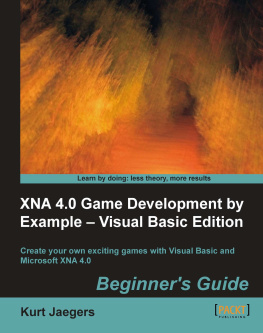
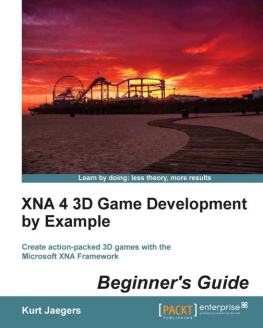

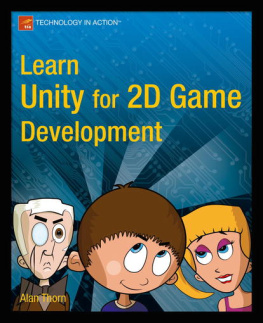
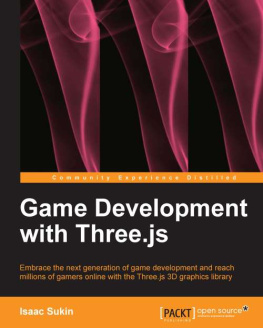
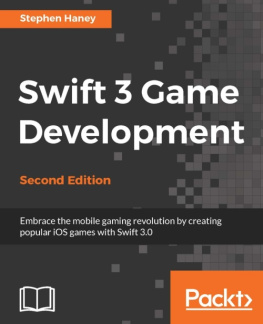
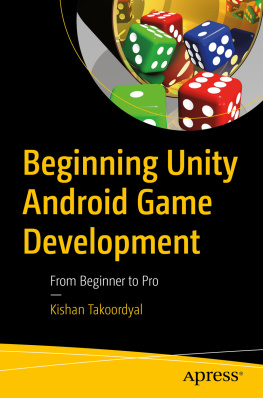
![Emanuele Feronato [Emanuele Feronato] - Flash Game Development by Example](/uploads/posts/book/120345/thumbs/emanuele-feronato-emanuele-feronato-flash-game.jpg)
